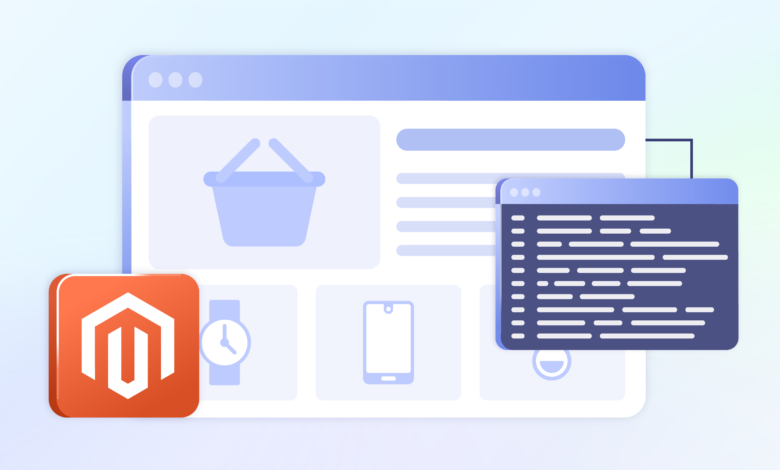Why Next.js is Great for Building a Powerful eCommerce Site

Having a powerful and reliable e-commerce platform is essential for any business aiming to compete. With countless web development frameworks available today, it can be challenging to choose the right one for building a seamless and high-performing e-commerce site. One framework that has been gaining significant traction is Next.js.
Next.js, a powerful React-based framework, has emerged as a preferred choice for developers looking to build robust and scalable e-commerce platforms. Its flexibility, performance optimization, and SEO capabilities make it an excellent option for modern online stores. In this blog, we’ll explore why Next.js is great for building a powerful e-commerce site and how it can enhance your online business.
What is Next.js?
Next.js is a React-based open-source framework that enables developers to build web applications with server-side rendering (SSR) and static site generation (SSG). It provides out-of-the-box features like automatic code splitting, optimized image loading, API routes, and much more. This versatility makes Next.js a go-to framework for developers creating high-performance, scalable websites, especially in the e-commerce domain.
Next.js, originally developed by Vercel, simplifies building complex web applications through a user-friendly structure that incorporates both static and dynamic generation methods. This hybrid approach improves website loading speed, enhances search engine optimization (SEO), and ensures a superior user experience, all of which are essential for a successful e-commerce platform. For businesses seeking efficient development, hiring dedicated Next.js developers can further streamline the process, ensuring optimal performance and scalability.
Benefits of Next.js for E-commerce Site Development
Next.js offers a wide range of features and benefits that make it an ideal framework for developing powerful e-commerce platforms. Let’s break down some of the key advantages:
1. Enhanced Performance with Server-Side Rendering (SSR)
When it comes to e-commerce, speed is everything. A slow-loading website can lead to high bounce rates and lost sales. Next.js’ server-side rendering ensures that pages are pre-rendered on the server before being sent to the client. This reduces the time it takes for a page to load, improving the user experience and increasing the chances of conversions.
2. SEO Optimization
One of the major reasons why Next.js is great for e-commerce development is its built-in SEO features. Traditional single-page applications (SPAs) often struggle with search engine optimization because content is dynamically loaded on the client side. However, with Next.js, server-side rendering ensures that search engine bots can crawl and index content effectively, leading to better rankings in search engine results pages (SERPs).
3. Static Site Generation (SSG) for Speed and Scalability
Next.js supports static site generation, allowing developers to build pages at compile time. This is particularly beneficial for e-commerce sites with product catalogs or blog sections that don’t require frequent updates. By generating these pages ahead of time, Next.js ensures that they load instantly for users, leading to a smoother shopping experience.
4. Automatic Code Splitting
Next.js automatically splits the code for each page, loading only the necessary JavaScript when needed. This feature dramatically reduces the initial load time of your e-commerce site, ensuring that users don’t have to wait for large chunks of code to download. This leads to faster interactions and better overall performance.
5. Scalability and Flexibility
As your e-commerce business grows, so will the demands on your website. Next.js offers the flexibility and scalability needed to accommodate a growing product catalog and increased traffic. Whether you need to handle thousands of concurrent users or integrate new third-party services, Next.js can support your evolving business needs with ease.
6. Security
With Next.js, you don’t have to worry about security vulnerabilities. Next.js builds are optimized and follow modern security practices. Additionally, SSR reduces the risks associated with sensitive data exposure, as much of the processing happens on the server side rather than on the client side.
Why use Next.js for Building Powerful E-commerce Websites?
The key question for any e-commerce business is: Why Next.js? What sets it apart from other frameworks when building a robust online store? The following features of Next.js highlight why it’s a superior choice for creating powerful e-commerce websites:
1. Personalized Shopping Experiences
E-commerce sites need to provide personalized experiences for users based on their browsing and purchase behavior. With Next.js, developers can build dynamic pages that update in real-time based on the user’s activity. Whether it’s showing related products or offering tailored promotions, the flexibility of Next.js allows for the creation of personalized shopping experiences that can significantly boost customer engagement and sales.
2. Headless CMS Integration
Next.js is an ideal framework for implementing a headless CMS, enabling developers to decouple the front-end from the back-end content management system. This decoupled architecture offers several advantages for e-commerce sites, including the ability to integrate with multiple CMS platforms and APIs, faster content delivery, and enhanced flexibility in presenting content across various devices.
3. Improved User Experience with Fast Rendering
Page speed is crucial for e-commerce sites, especially when it comes to converting visitors into buyers. With its combination of server-side rendering and static site generation, Next.js ensures that pages load rapidly, even for users with slower internet connections. Faster page load times lead to improved user experience and, ultimately, higher conversion rates.
4. Simplified Development with API Routes
Building an e-commerce platform involves connecting multiple services like payment gateways, shipping providers, and customer management systems. Next.js simplifies this process with its built-in API routes feature, which allows developers to easily create and manage serverless API endpoints. This eliminates the need for additional backend infrastructure, reducing development time and complexity.
5. Progressive Web App (PWA) Capabilities
Next.js supports progressive web app (PWA) features, which means you can create a web app that behaves like a native mobile app. For e-commerce businesses, this is a major advantage as it allows customers to browse products, make purchases, and receive notifications even when they’re offline. PWAs built with Next.js are also faster and more responsive than traditional websites, providing a superior mobile shopping experience.
Maximizing Potential with the Next.js E-commerce Solutions
The flexibility and power of Next.js open up numerous possibilities for building a highly effective e-commerce website. To make the most of its potential, consider these tips when building your Next. js-powered online store:
1. Use Incremental Static Regeneration (ISR)
Next.js’ ISR feature allows you to update static content without having to rebuild the entire site. For an e-commerce platform, this means you can make updates to product pages or promotional content and see those changes reflected immediately without downtime. This is particularly useful for stores with large product inventories or frequent updates.
2. Optimize Images with Next.js Image Component
Next.js comes with a built-in image component that optimizes image loading by serving images in the correct size for each user’s device. For e-commerce sites, where product images are critical, this feature ensures that images load quickly and look sharp across all devices, improving user experience and reducing load times.
3. Utilize Analytics for Data-Driven Decisions
Next.js can easily integrate with analytics platforms like Google Analytics or custom solutions to track user behavior. Understanding how users interact with your e-commerce site is essential for optimizing the shopping experience and improving conversion rates. By leveraging data insights, you can make informed decisions to enhance your site’s performance and design.
4. Focus on Mobile-First Design
Given the growing trend of mobile shopping, your e-commerce site must be optimized for mobile devices. Next.js’ performance capabilities, along with its support for PWA features, make it easy to create a mobile-friendly experience that’s fast and responsive. Ensure that your site looks great and functions seamlessly on both desktop and mobile devices.
Conclusion
In today’s competitive e-commerce landscape, having a fast, scalable, and user-friendly website is essential. Why choose Next.js? It offers the performance, SEO optimization, and flexibility necessary to create a robust e-commerce platform. By utilizing its server-side rendering (SSR), static site generation (SSG), and seamless integrations, Next.js enables developers to build high-performing online stores that provide exceptional user experiences.Next.js significantly enhances site performance, leading to improved search engine rankings and increased conversion rates through better user experience. Its ability to deliver dynamic content efficiently ensures that product pages are fully indexed by search engines, which is crucial for driving organic traffic. This framework is particularly advantageous for both new e-commerce ventures and those looking to enhance existing platforms.At Viitor Cloud Technologies, we specialize in leveraging Next.js to build powerful online stores that stand out in the digital marketplace. Whether you’re starting fresh or seeking to optimize your current e-commerce solution, Next.js is undoubtedly a top choice for your next online store.For more information or to get started on your e-commerce journey with Next.js, contact us today!





